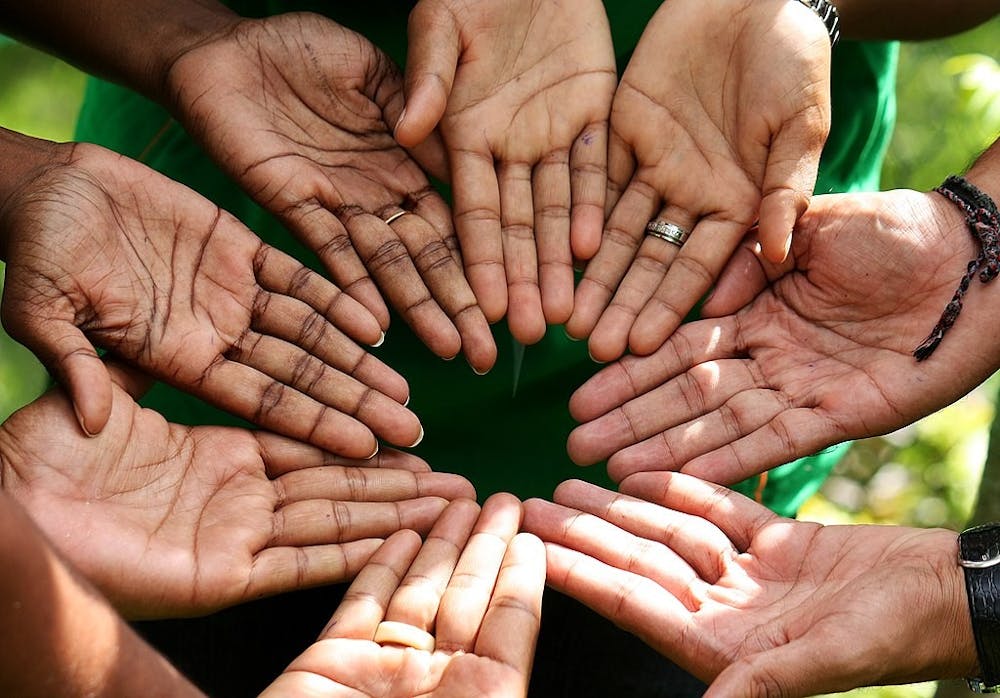An ordinary notice board hangs in my neighborhood with a simple note tacked: “Please share your stories or any facts you have debunked during these troubling times. Let us help combat disinformation and give our society hope!” This board stood empty the evening it was placed but was immediately swarmed with newspaper clippings and handwritten stories the next — some meant to instill hope while others busted false information that was circulating around our community during the pandemic. Some scientists and medical professionals working at the frontlines also shared their experiences and tips for the community to keep themselves safe. This board serves more than to show a community coming together during a crisis; it reinforces an age-old lesson. Science alone cannot combat this pandemic without substantial help from the humanities, and a well-blended combination of both in an individual’s education equips them with lifelong tools to respond in the time of a crisis.
The number of STEM majors is exponentially increasing. As fewer graduates walk away with degrees in English, foreign languages, and history, fewer graduates walk away with the critical-thinking and social skills harnessed by these disciplines as well. Students are encouraged to pursue the more “lucrative” STEM majors, whereas a humanities degrees are often incorrectly linked to unfulfilling and pointless professions. Students are discouraged from taking classes beyond their concentration as such classes are considered a waste of time, rather than an asset. If a students are interested in exploring beyond their field, their many schedule constraints prevent them from discovering their balance. This perspective pits the two fields against each other, when in reality, they reach the height of their potential when combined.
Instead of viewing the humanities as a “hobby,” STEM students should strive for what I affectionately call the “smoothie approach.” Put in some science classes (the fruit) and connect those ideas to society while discussing humanities topics (the milk), and you have created something sweet! You can mix and match any of the ingredients to create the right smoothie for you — the important point being that it is healthy for your future. Incorporating values fostered by the humanities, like empathy and creativity, will not only help scientists perform better but will also help them see their work align with society. After all, the pursuit of science satisfies humanity’s primary goal: to augment our world and create an efficient and harmonious society. Does that sound familiar? It should, because even though both fields focus on different topics and practices, they lead to the same goals. The responses to the current pandemic is all the evidence anyone needs to prove it.
The 2008 Wall Street Crash is credited with delivering the big blow to the humanities. The economic recession caused by the coronavirus pandemic has potential to deliver the final punch. The paradox present here is that a simple analysis of the response to the pandemic illustrates how science has relied on the humanities to ease tensions. The impassivity that usually accompanies statistics and scientific information is made more digestible by accompanying stories and experiences which ensure human connection. Doctors, nurses, and several other scientists at the frontlines of the pandemic share their stories alongside providing tips to keep the general public physically and mentally healthy. Several people are reevaluating their position in society by redefining their career choices to serve underprivileged and minority groups, and the forging of virtual relationships across countless Zoom calls has emphasized the need for human connection. Even employers of the aforementioned “lucrative” fields now prefer candidates with an array of critical thinking and social skills that can only be cultivated through a study of the humanities. Instead of aiding in its demise, we should revitalize studying the humanities and celebrate our commonalities and our differences.
We braved past pandemics through this collaboration of disparate disciplines. As true then as it is now, the role of individuals in spreading relevant information and helping people get through hard times is crucial for a society to bounce back. The hope created from this interaction channels through everyone, regardless of past background or experience, and encourages sound leadership. Effective leaders understand the potential to use their arsenal of “soft skills” forged through the study of the humanities to lead a community through any crisis.
When developing an educational plan, it is important to adopt an “and/with” attitude instead of an “either/or” mindset. Several educational institutions propose a liberal arts model and encourage students to reinforce their technical skills with an arsenal of “soft skills.” Princeton has also joined in the effort, setting a minimum requirement of seven humanities courses for B.S.E concentrators. Others are integrating science classes with relevant history and sociology topics and providing “all-in-one” courses, which alleviates potential scheduling burdens for STEM students.
Studying the humanities is, in its crudest interpretation, a study of ourselves: a study of what it means to be human, what our role is in our global community, which societies came before us, and which societies might come after us. If we cannot be experts on ourselves, then who can?
Alaina Joby is a first-year from Los Angeles, CA. She can be reached at ajoby@princeton.edu.








